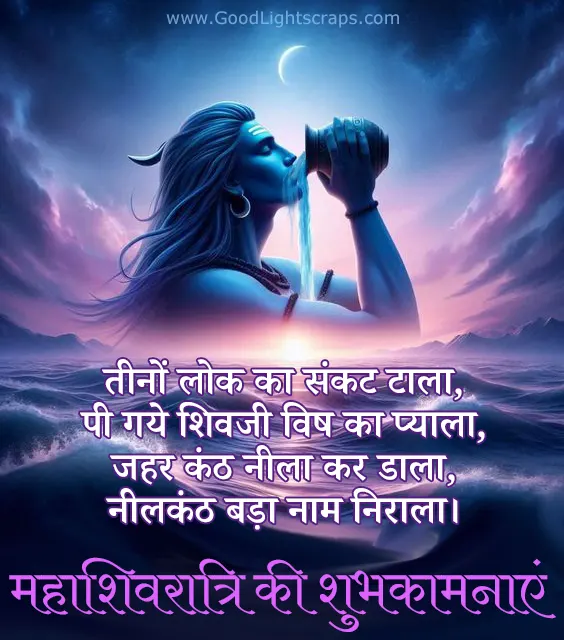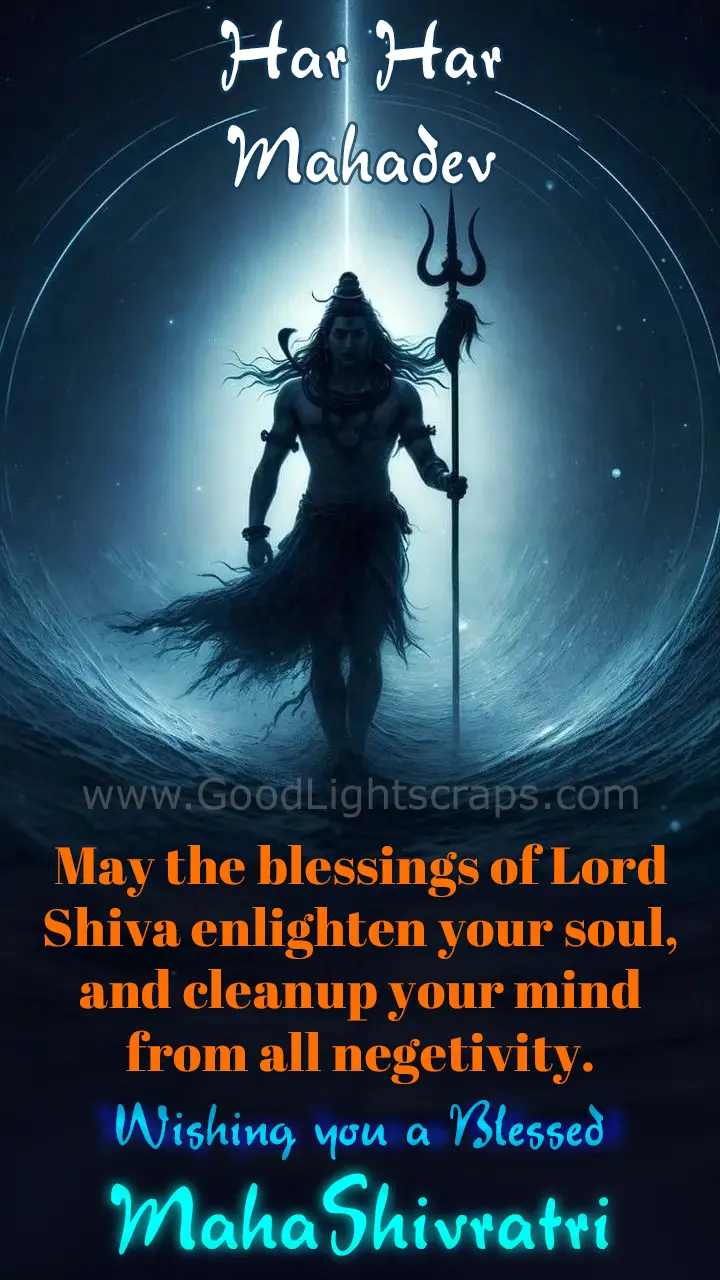Introduction
MahaShivratri, also known as "The Great Night of Shiva," is one of the most significant Hindu festivals celebrated with immense devotion and fervour across India and the world. This sacred night is dedicated to Lord Shiva, the destroyer and transformer in the Hindu Trinity, and holds profound spiritual significance. In 2025, MahaShivratri falls on [26th February], and millions of devotees will observe fasts, perform rituals, and offer prayers to seek blessings, inner peace, and liberation. In this article, we delve into the essence of MahaShivratri, its history, significance, rituals, and how you can celebrate this divine occasion.

More Free Wishes, Images
What is MahaShivratri?
MahaShivratri is a Hindu festival celebrated annually in honour of Lord Shiva. The term "MahaShivratri" translates to "The Great Night of Shiva," and it is believed that on this night, Lord Shiva performs the cosmic dance of creation, preservation, and destruction. Devotees stay awake all night, engaging in prayers, meditation, and chanting of sacred mantras like "Om Namah Shivaya" to connect with the divine energy of Shiva.
MahaShivratri holds deep spiritual and mythological significance. Here are some key reasons why this festival is celebrated:
- The Marriage of Lord Shiva and Goddess Parvati: MahaShivratri is believed to be the day when Lord Shiva married Goddess Parvati, symbolizing the union of divine masculine and feminine energies.
- The Night of Awakening: It is said that on this night, the planetary positions in the northern hemisphere create a natural upsurge of energy, making it an ideal time for meditation and spiritual practices.
- Overcoming Darkness and Ignorance: MahaShivratri signifies the triumph of light over darkness and wisdom over ignorance. Devotees pray to Lord Shiva to rid themselves of negativity and attain spiritual enlightenment.
- The Legend of the Lingam: According to Hindu mythology, MahaShivratri marks the day when Lord Shiva manifested in the form of a Lingam (an abstract representation of Shiva). Devotees worship the Shiva Lingam with offerings of milk, honey, and water.
MahaShivratri Wishes
Images and sayings
How is MahaShivratri Celebrated?
MahaShivratri is celebrated with great devotion and enthusiasm. Here are the key rituals and traditions associated with this festival:
- Fasting (Vrat): Devotees observe a strict fast on MahaShivratri, consuming only fruits, milk, and water. Some devotees even observe a "Nirjala Vrat," abstaining from food and water for the entire day.
- Night-long Vigil (Jagaran): Staying awake all night and chanting Shiva mantras is a common practice. Temples organize special events, including bhajans, kirtans, and spiritual discourses.
- Abhishekam of Shiva Lingam: The Shiva Lingam is bathed with milk, honey, yogurt, ghee, and water, symbolizing purification and devotion. Bel leaves, flowers, and fruits are offered to the deity.
- Meditation and Yoga: MahaShivratri is considered an auspicious time for meditation and yoga, as it helps in channeling positive energy and achieving inner peace.
- Visiting Shiva Temples: Devotees visit Shiva temples to offer prayers and seek blessings. Some of the most famous temples for MahaShivratri celebrations include the Kashi Vishwanath Temple in Varanasi, Somnath Temple in Gujarat, and Mahakaleshwar Temple in Ujjain.
The Spiritual Benefits of Observing MahaShivratri
Observing MahaShivratri with sincerity and devotion can bring numerous spiritual and personal benefits:
- Inner Peace and Clarity: The practices of fasting, meditation, and prayer help calm the mind and bring clarity to thoughts.
- Purification of the Soul: The rituals performed on MahaShivratri are believed to cleanse the soul and remove past sins.
- Health Benefits: Fasting detoxifies the body and improves digestion, while meditation reduces stress and anxiety.
- Divine Blessings: Devotees believe that observing MahaShivratri with devotion brings the blessings of Lord Shiva, leading to prosperity, happiness, and spiritual growth.
MahaShivratri Greetings
Images and sayings
MahaShivratri and Modern Life
In today’s fast-paced world, MahaShivratri serves as a reminder to pause, reflect, and reconnect with our inner selves. The festival encourages us to let go of negativity, embrace positivity, and strive for spiritual growth. Whether you are a devout follower of Hinduism or someone seeking inner peace, MahaShivratri offers a unique opportunity to experience the divine energy of Lord Shiva.
Conclusion
MahaShivratri is more than just a religious festival; it is a celebration of spirituality, devotion, and renewal. By observing the rituals and practices associated with this sacred night, devotees can experience a deep sense of connection with the divine and attain inner peace. As you prepare to celebrate MahaShivratri in 2025, take a moment to reflect on the teachings of Lord Shiva and embrace the transformative power of this auspicious occasion.
